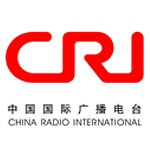渣打不是个案 外资银行“离岸客户”管理灰幕
当渣打银行对其私人银行员工吴伊甸涉嫌帮助农行支行长孙锋洗钱一事三缄其口,一位渣打内部人士向记者透露了一些关键要素,或可揭开偶然事件背后鲜为人知的必然逻辑。
据该人士透露,为拓展市场,渣打私人银行部曾在2011年间,进行了一系列大力拓展离岸私人银行客户的动作,其中不乏一些较为激进,甚至有违规嫌疑的行为。吴伊甸正是在此期间入职,而她的外籍身份也更便于为国内客户办理离岸业务。
在中国严格的金融监管体制下,以离岸业务见长的外资银行,在国内开展私人银行业务时,遇到了不少困惑。一些较为激进的外资银行大胆打“擦边球”的同时,也累积了风险。
不过,该人士称,如今渣打策略已经修改,不再向客户经理下达离岸客户指标,重新转向在岸业务。与此同时,中国区私人银行业务条线也已经整体降级,由直接向新加坡总部汇报改为向香港汇报,中国私人银行业务在渣打的总体业务中亦有逐渐边缘化的趋势,
记者就此事向渣打银行公关部人士求证,但截至发稿前,仍未收到回复。
“离岸客户”纳入考核
对于外资私人银行而言,外汇产品、全球化布局是其优势所在,但鲜为人知的是,一些银行背后还暗藏“输送客户”交易。
一位前外资银行私人银行部高管、后转投中国某股份制银行私人银行部人士透露,向国外介绍客户并不是一件新鲜事,早在他任职期间就存在,但根据每次负责人的不同,策略会有所变化。该人士从2008年开始任职外资私人银行部,并于2009年离开。
渣打的改变从2011年1月开始。一个不得不提的关键名字——魏元科(Ryan Gwee),2011年1月底被任命为渣打银行私人银行中国区总裁,彼时他已经在渣打私人银行任职超过10年,在新加坡和香港担任过多个管理职位,获任前担任渣打银行(香港)私人银行客户经理主管。
2011年1月之后,私人银行部的业务发展策略开始向移民和资产转移倾斜。一位前渣打员工称。推荐海外私人银行客户亦被纳入内地私人银行客户经理的考核指标,甚至包括“要在国外完成盈利和存款”指标。
渣打私人银行2011年3月14日的联合每日报告显示(下称“3.14报告”),每位客户经理的名字后面,除了“已经存在”和“2011年新增客户数”栏目外,额外增加了一栏“Throw”,细分为“Cases Thrown”和“Successful Cases”。
“之前没有Throw栏。”前渣打员工解释,“已经存在”和“2011年新增客户数”代表的是内地客户情况,“Throw”代表的是内地客户经理推荐到海外渣打私人银行客户的情况,其中“Cases Thrown”代表推荐的客户数,“Successful Cases”代表成功推荐的客户数。
3.14报告显示,不少客户经理已经有成功案例。东部区域一共推荐了6位海外客户,成功3位;南部区域一共推荐了5位客户,成功2位;北部区域一共推荐了13位,成功7位。从总体数量上看,海外客户已经占相当比例。
此外,当日报表还显示,从2011年1月1日到3月14日,中国区新增在岸客户25位,新增离岸客户13位,新增的海外客户数量几乎占内地新增客户的一半。其中,一位名为“Cindy Jiang”的客户经理的海外业绩居首,一共推荐了6位海外客户,成功4位,但其内地客户数量为零。
但前述转投某中资私人银行人士称,这不符合常理,基本上不会出现一名客户还不是在岸客户就已经成为离岸客户的情况,“一定要先在国内开户后,再推荐过去。”
但前渣打员工笃定地称,Cindy Jiang没有任何在岸客户管理经验,只做离岸客户。“2011年5月前,渣打每日报表都有离岸客户指标。但后来去掉了,改在私下统计。”
设立香港结算中心
王伟(化名)是当时渣打离岸私人银行客户中的一位。
在印有渣打私人银行抬头及某内地分行地址的纸张上,王伟申明“2011年1月,本人在**(某内地城市)渣打银行私人银行中心要求,渣打私人银行经理陈俊安协助开立香港渣打私人银行账户做投资用。特此证明。”落款为王伟签名及联系电话。
前述渣打私人银行人士称,王伟还不是内地私人银行客户,客户经理就直接对其进行海外私人银行业务的营销。当时,为了发展更多离岸私人银行客户,渣打银行为内地客户直接在内地开设离岸私人银行账户,尽管这与相关法律有所冲突。
“过去也有香港客户经理来内地拜访客户,但不能直接帮助客户开户或者办理业务。一方面,大陆规定不可以在内地的营业网点中做海外业务,另一方面,根据国外规定,需要有‘号码’(当地从业资格)的人才能开户。”
但这两者都有办法规避。前者可以在银行营业网点之外的场所办理,后者则要借助部分客户经理的特殊身份。
“获得‘号码’的两种方式,找在国外有资格开户的人,或者把国内的客户经理变成有资格的人,显然前者容易得多。”前述人士介绍。
同魏元科一起来到中国的,还有其两名下属——陈俊安(Sean Chen)和Vivian Tang,二者及魏本人均为新加坡籍,都拥有国外开户资格,陈即为王伟证明中提到的客户经理。
此类客户经理多为外籍人士,知情人士称,“因为在香港、新加坡等地开户不需要摄像,所以很容易进行暗箱操作。”
据该人士透露,为了推进这一策略,渣打中国区私人银行还在香港设立了结算中心,把中国内地推荐来的海外客户的需求放在同一个结算中心,产生的利润可以为境内的业绩评定加分。甚至对客户经理许诺“将来有一天客户积累多了,可以直接去国外做客户经理。”
一名在渣打私人银行成立初期即任职的人士称,简而言之,过去是通过“卖客户”获得提成,但并不正式,很多承诺不了了之,而结算中心的模式较正式,但其实“算也算不清楚”,后期做不下去。
但上述结算中心做法并未获得渣打官方确认。
中外资模式之辩
渣打私人银行的如上变局背后,是外资私人银行管理机制和发展模式的困境。
在香港、新加坡等地,私人银行主要服务于全球范围内的离岸资金,拥有税收方面的优惠政策和相对发达的资本市场,因此许多富人将财富交由设立在此的私人银行管理,私人银行甚至定位为“离岸私人银行”,为离岸人士“管钱”并满足他们巨额资金的投资需求。
“在香港和新加坡,外汇没有管制,客户经理可以背上其他区域的指标,而在中国这是违法的。”一位新加坡本地银行的私人银行人士称。
形成鲜明对比的是,渣打银行前中国区私人银行总监陈庆(魏元科的前任)在接受媒体采访时曾表示,要加强在岸私人银行业务的发展。陈1997年入职渣打后,一直在国内工作,直到2010年8月离职。。
陈庆认为,与私人银行传统的“离岸”财富管理不同,中国内地私人银行市场将是“在岸”市场。她说,在中国发展私人银行不能局限于财富管理模式,银行应该整合自身在企业银行等方面的传统优势,为客户提供全面的金融服务。
与陈庆共事过的一位渣打私人银行员工认为,当时渣打是所有外资银行在岸私人银行中最好的,拥有会所、专属会客区等良好的硬件设施,以及35岁以上、5年以上公司业务或个人业务从业经验的本地工作团队。
2011年下半年,魏元科离任,渣打新的私人银行部总裁低调上任。知情人士称,其英文名为Sherry,过去在渣打银行负责培训。
由于其至今尚未公开露面,外界难以得知如今渣打中国的策略,但据知情人士称,目前,渣打的私人银行业务已经回归常态,更加注重在岸业务的发展。
4月19日,一位知情人士透露,渣打中国区的私人银行业务已经整体降级,执行低成本路线——降低总体薪金;并由过去直接向总部汇报改为向渣打香港私人银行部汇报。此外,现在的薪酬由和内地、海外双挂钩改为只和内地挂钩,内地不再背负新加坡和香港的业绩压力。
不过,亦有观点认为,外资银行在国内很难开展在岸业务。一名外资银行私人银行人士认为,外资银行主要的优势是外币产品和离岸业务,在国内的主要客户基础是在华的香港人或其他外籍人士。与中资银行相比,无论产品的多样性(尤其是人民币理财)或是客户规模都不能相提并论。
一位猎头公司人士透露,很多在华外资私人银行的客户经理都非常少,即使在北京这样的城市也只有“个位数”。而记者了解到的一些中资银行,客户经理动辄超过百位,仅一个私人银行中心的客户经理就可多达几十位。
此外,客户数量上,外资银行也远不能和中资银行相提并论。
就个别客户经理而言,通常中资银行客户经理可有70至100位客户,为了保证服务质量还要将客户转给其他客户经理,而外资银行客户经理常常在寻找客户的窘境中,有的只有20或者30位左右客户。
总量上,多家中资私人银行客户数量过万,例如2011年末中国银行私人银行客户约为2.4万人,而股份制银行也都为“千”级。但一些外资银行只有“百”级别。
人事更迭频繁
外资银行中高管“空降”的案例并不少见,一个常见的问题是“不了解中国的法律”,且通常会引发一系列的人事变化。
据前渣打员工介绍,2011年上半年,魏元科、陈俊安和Vivian Tang,分别担任上海、北京、深圳三地私人银行主管的同时,原有高管或离职、或调任其他部门,原有客户经理也大量离职。管理上,魏元科直接向位于新加坡的东半球私人银行区域主管汇报,并实质上拥有业务范围内的人事权,并不与渣打中国发生过多关系。
一位与魏元科相识人士回忆,“魏元科做了很多年财富管理,是一个非常好的客户经理。但是他对中国市场不太熟悉。”
实际上,外资私人银行人事一向更迭频繁。根据不完全统计,自2007年渣打银行成立至今已更换4任中国区负责人,分别是周幼兰、陈庆、魏元科和Sherry,区域的动荡更多。“北京区域在3年半中更换了5任负责人,其中一位担任了1年半。其余每位平均不到半年。”一位知情人士称。
罗迈国际(RMG)商务咨询有限公司合伙人曹迪表示,外资私人银行人员的平均流动率在30%左右,而中资私人银行不到10%,因为一些外资私人银行的文化“较为激进”。
表现为,考核上定下诸多指标,完成留下,完不成离开。另一位一家国际猎头公司银行业招聘专员认为,这种业绩压力以及经营策略的不稳定会造成人员的流失,此外重用外国人也是很多外资行的通病。
一名外资私人银行高管认为,外派的一些人开始就会想好“只是在中国几年”,会有一些短视的做法,而且合适的人员很难找,“外资私人银行的模式不适合中国,外来的人很难融入这个市场,但本土的人员又不适应外资银行的文化。”
曹迪说,近年来一些外资银行开始注重本地化,不少高管为本土人士升迁,比例可以达到50%左右。
记者注意到,现任渣打私人银行北京区域总监汪海燕曾是该行的内地客户经理,中国区负责人也为内地员工升迁。或许,在经过数年摸索后,外资私人银行能够寻得在中国发展之路。
Read the article: http://epaper.21cbh.com/html/2012-04/20/content_22390.htm?div=-1
http://www.21cbh.com/HTML/2012-4-20/5MMzcyXzQyMTc5MQ.html
 Listen to the radio: http://english.cri.cn/8706/2012/10/19/2861s728125.htm
Watch video on Youku: http://v.youku.com/v_show/id_XNDc3NDIyNjYw.html
Watch video on Youtube: http://www.youtube.com/watch?v=wgWzx1uf4TQ
Listen to the radio: http://english.cri.cn/8706/2012/10/19/2861s728125.htm
Watch video on Youku: http://v.youku.com/v_show/id_XNDc3NDIyNjYw.html
Watch video on Youtube: http://www.youtube.com/watch?v=wgWzx1uf4TQ

